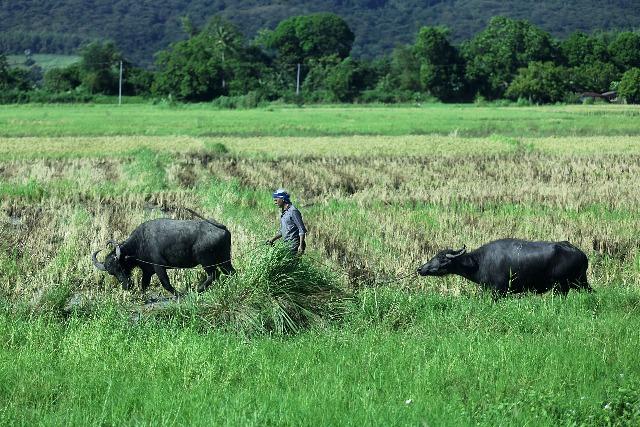BSP, DA, DAR amend Agri-Agra law IRR as banks’ compliance remains low

The Bangko Sentral ng Pilipinas (BSP), the Department of Agriculture (DA) and the Department of Agrarian Reform (DAR) have amended the implementing rules and regulations (IRR) of the The Agri-Agra Reform Credit Act of 2009 to improve financing to the agrarian reform, fisheries, and agricultural sector.
At a virtual press conference, BSP Governor Benjamin Diokno said that as of end-December 2020, the banking system extended a total of P713.6 billion in agri-agra credit.
“Even with such an amount, banks were still unable to comply with the mandatory agri-agra credit,” Diokno said.
Under Republic Act No. 10000 or the Agri-Agra Reform Credit Act, banks are mandated to allocate 25% of their loanable funds for the agriculture industry, 15% of which should be for agriculture-related projects and 10% for agrarian reform beneficiaries.
In particular, the BSP chief said the banking system’s P642.4 billion in agricultural credit in 2020 translates to a 9% compliance ratio, which is below the 15% requirement.
Meanwhile, the P71.2 billion in agrarian reform credit translates to a 1.0% compliance ratio, which is below the minimum 10%.
Under the law, penalties for noncompliance shall be computed at 0.5% of banks’ noncompliance or undercompliance ratio and shall be directed to the development of the agri-agra sector.
A number of factors have contributed to the banks’ low compliance profile, according to the BSP chief.
“First is the processing time-related to securities accreditation. To note, prior to the amendments, debt securities are required to be accredited by the Agricultural Credit Policy Council,” Diokno said.
“Second, borrowers experience difficulties in securing agrarian reform credit. Third is the limited availability of agri-agra compliant debt securities,” he said.
“Fourth is the lack of visible bankable agricultural projects,” he added.
To address the low compliance of the banking sector, Diokno said concerned agencies introduced amendments to the Agr-Agri law.
“The amendments to the IRR of R.A. No. 10000 will broaden access of the agrarian reform sector to bank financing, streamline banks’ process of investing in agri-agra eligible securities, and promote innovative financing solutions, within the legal ambit of R.A. No. 10000,” Diokno said.
In particular, the amendments to the IRR of R.A. No. 10000 are:
- Expand the eligible modes of compliance with the 10 agrarian reform credit requirement by including: (a) loans to members of agrarian reform households, and (b) financing of activities that shall generally benefit agrarian reform beneficiaries (ARBs) and/or ARB households as well as agrarian reform communities
- Remove the accreditation requirement for debt securities to be considered as agri-agra eligible
- Allow investments in shares of stock of companies that are primarily engaged in eligible agricultural activities as an eligible mode of alternative compliance
- Promote special lending arrangements that consider the holistic requirements of agricultural borrowers such as agricultural value chain financing.
“The amendments to the Agri-Agra IRR are the product of the concerted efforts of the DA, DAR and the BSP to mobilize bank sector financing towards the agrarian reform, fisheries, and agricultural sector by addressing challenges identified in the operationalization of the Law. It is a timely and positive development since it will assist this sector to recover from the impact of the COVID-19 pandemic and other natural calamities,” Diokno said.
However, he said that the IRR amendments are only an interim measure pending the passage of the proposed amendments to the Agri-Agra law.
The BSP is currently pushing for the enactment of comprehensive amendments to the Agri-Agra Law which recommend a financing approach that considers the requirements of the broader agricultural ecosystem.
“The proposed amendments to the Law are envisioned to strengthen rural development and improve the well-being of agricultural and rural community beneficiaries,” Diokno said. — BM, GMA News



